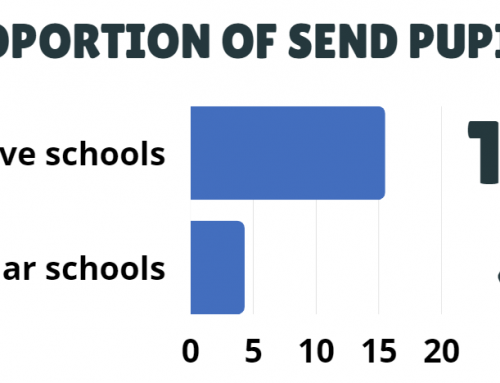Parents may find the school admissions system becomes more unfair and difficult to navigate as a result of key proposals in the Coalition’s Education Bill.
The abolition of local admissions forums, which currently bring together school governors, parents, churches and local authorities in a statutory body to monitor admissions in their areas, is to be debated this week.
But Comprehensive Future, which campaigns for fair admissions to all schools, has surveyed the chairs of admissions forums across the country and found that a majority opposed abolition at a time when more and more schools are going to be given control over which children they admit as numbers of academies and free schools expand.
Concerns raised by admission forum chairs were that:
“Admission processes will become more school-centric rather than parent-centric”.
There would be a “free for all on admissions”.
Abolition would lead to “less transparency in the admissions system”
“Schools will select by ability, the weak and disadvantaged will lose out.”
Abolition would cause “chaos and unfairness and go against the concept of the Big Society”.
“Abolition would result in a more piecemeal approach losing an independent and representative body. This could conceivably impact on fairness and equity of access.
“Abolition would lead to inequitable, opaque admission arrangements that would in turn produce poor outcomes for many children and parents”
The government is also planning to shorten and simplify the School Admissions Code in the near future and the Education Bill, currently in its Committee Stage, changes the powers of the Chief Schools Adjudicator, which currently monitors compliance with the Code. Some respondents also called for the powers of the Chief Adjudicator to be strengthened.
Fiona Millar, Chair of Comprehensive Future, said: “The changes in the Education Bill risk creating an admissions system that is chaotic, unfair and reduces choice for many families who may find it harder to get into their first choice of school. Comprehensive Future believes that we need strong independent oversight of admissions at a local level. The Admissions Forum is perfectly placed to provide this oversight and should be given more powers rather than be abolished”
Notes to editors
1. Questionnaires were sent to 152 authorities, 38 have responded so far, from 10 Metropolitan Districts, 16 Unitary authorities.,8 County Councils and 4 London Boroughs.
2. Comprehensive Future’s aims are –
- To end selection on ability and aptitude. The principle to be laid down nationally with locally agreed arrangements which secure as far as possible balanced intakes to all schools.
- To strengthen of the role of the local authority in managing admissions
- To increase the independent oversight of admissions, at local level by admission forums and at national level by the Office of the Schools Adjudicator
3. Admission Forums were recommended by the School Admissions Code which came into effect in 1999. Local Authorities were encouraged to voluntarily set them up to be the vehicle for consultation and discussion of issues arising from proposed admission arrangements in order to develop a real consensus at local level. They were made statutory in the Education Act 2002 as the then Government said that admission forums had played a valuable role in making sure admission arrangements served the needs of local children and parents..
4. The membership of the Forum is intended to ‘reflect the needs of their local community’ and the membership must reflect the type of schools in the locality. Regulations stipulate that membership is to be no more than 20 with at least one representative of community, voluntary aided, voluntary controlled, foundation and academies and CTCs in the relevant area, representatives of each of the religious bodies involved in any of the local schools, at least one parent and at least one community representative. School representatives must be heads or governors but not local authority governors. These are all volunteers and LA officers provide the administrative support.
5. A few of the issues forums reported they were considering –
Streamlining the coordinated in-year admissions process to ensure pupils are placed quickly; equality of access to more vulnerable pupils to all categories of schools; looked after children; pressure on primary school places; admission priorities for primary places; Fair Access Protocol for children with challenging needs; changes to school transport; catchment areas and planned admission numbers; proposal by a neighbouring authority which if successful would have disadvantaged some children in the county ; academies/foundation schools and possible changes in their admissions policies; helped encourage most schools changing to the same number of bands for the banding tests and that the banding schools deciding that children take only one test at their primary school, so only tested once; balance between supporting LA policy of encouraging greater use of on-line applications (with the consequent resource savings) whilst ensuring that the children of those who cannot or choose not to use the internet are not disadvantaged.
6. The School Admissions Code sets out the requirements for admission authorities (schools and local authorities) in admissions for example the fair oversubscription criteria which can be used if more parents apply than there are places. The School Adjudicator’s role in admissions is to investigate and rule on complaints where parents, admission forums, schools and local authorities consider a school is operating admissions unfairly and in contravention of the Code.





